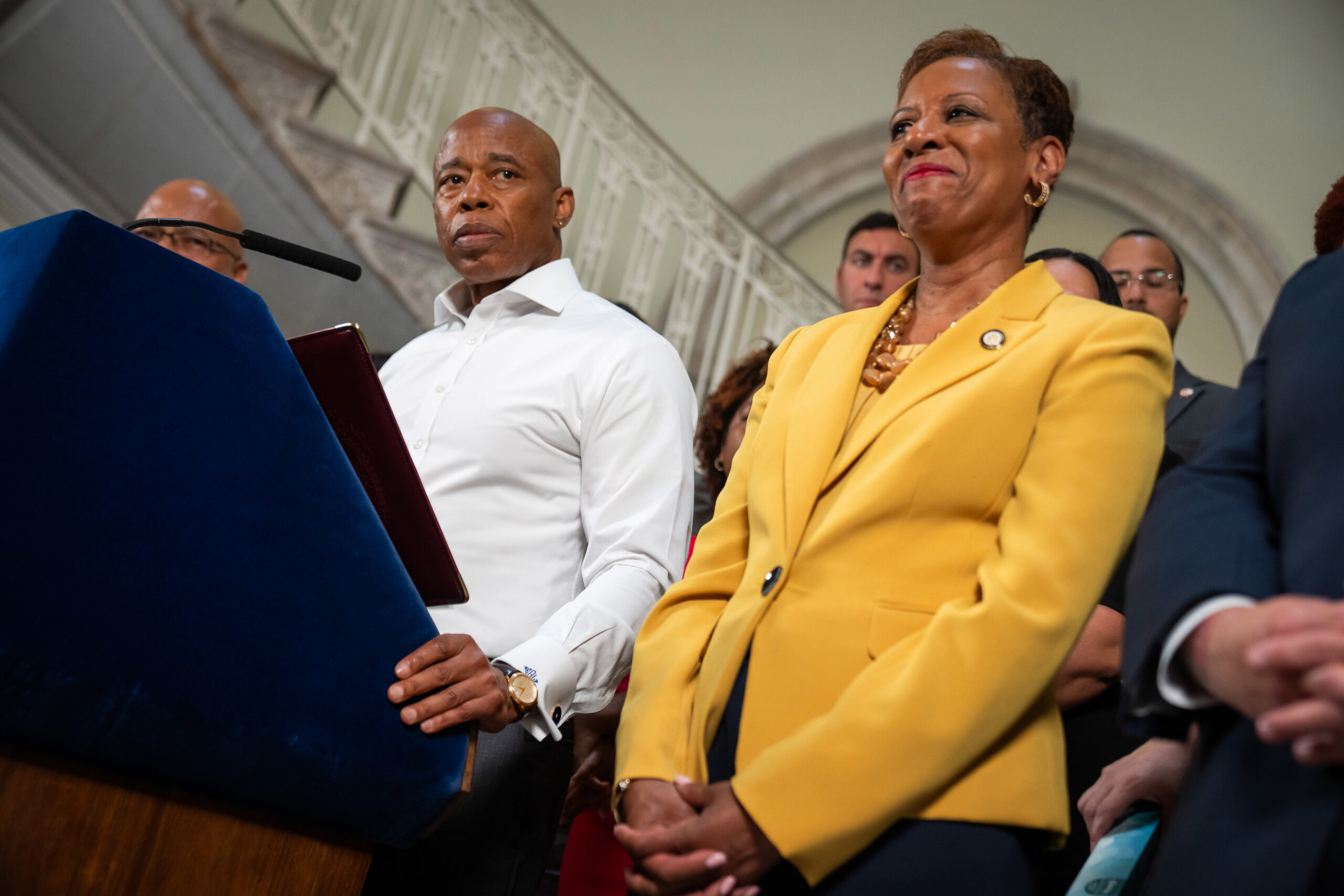The honeymoon period that Mayor Eric Adams and City Council President Adrianne Adams have generally enjoyed so far is going through a difficult moment, all due to the consultation that the city administration wants to put to a vote in the November elections, with several questions for the electorate.
Just days ago, Mayor Eric Adams’ Charter Review Commission revealed it had decided on five questions that it is seeking to put to a vote, which would slow the legislative body down in, among other things, its attempt to strengthen its oversight of appointments by mayors who run the Big Apple. That body will not be able to include on the vote a question it wanted about giving the power of advice and consent to block 20 agency commissioner positions that the mayor can currently appoint unilaterally.
One of the questions the City administration will be pushing concerns public safety, and while the original call was to require the Council to wait 45 days to bring up any bill related to the operations of the NYPD, FDNY or Department of Corrections to hold a public hearing, the final version of the ballot measure eliminated the waiting periods and proposed requiring the Council to notify the mayor’s office at least 30 days before a vote on a bill related to public safety.
The second ballot proposal that has lawmakers upset would require the Council to release so-called fiscal impact statements, which estimate the cost of each piece of legislation, before holding a hearing on a bill. Currently, fiscal impact statements don’t need to be released until before a vote, and that would limit the progress of initiatives.
The other approved questions relate to streamlining sanitation operations, reporting on repair needs at city-owned buildings and creating a new administration position related to increasing diversity in government hiring protocols.
And publicly showing their opposition to Mayor Adams’ intent, several council members, led by the chamber’s speaker, spoke out Thursday accusing the mayor of trying to circumvent the democratic process for the commission to make changes to local laws. They charged with particular fierceness that they had hoped his advise-and-consent bill, which would increase its oversight over 20 commissioner-level appointments, would be included on the ballot and was excluded.
“This is an attempt by the mayor to take control of the legislative body that was elected to represent the people of New York City. It is a dangerous power to transfer power from the people represented by the Council to one person,” the City Council Speaker said, adding that it would be like creating a figure with monarchical powers. “What is clear is that the mayor’s commission was created simply to prevent voters from deciding on the existing advice and consent proposal in the November election.”
The legislative leader warned that if the proposals formulated by the mayor’s commission end up on the ballot in November, “New Yorkers should oppose them,” and anticipated that they will push for a campaign to prevent the electorate from approving them.
Manhattan Councilwoman Gale Brewer also lashed out at Mayor Adams’ actions, warning that he is seeking to seize powers that should belong to the Council.
“They are going to make us tell the Council what to do with the bills that we have been discussing for a long time. It is a wrong fight, Mr. Mayor. Let’s see what appears on the ballot and I think there will be a big anti-referendum,” the politician predicted.
Council members insist the questions approved by Mayor Eric Adams’ Charter Review Commission for referendum would impose additional requirements on the city’s legislative process, which they view as an executive power grab designed to stifle their oversight powers. The mayor, for his part, says they would strengthen public safety and promote fiscal responsibility.
“This sham Mayor’s Charter Review Commission has done a disservice to New Yorkers by putting forward rushed proposals that block voter rights while undermining democracy and oversight of the Mayor’s administration,” a City Council spokesperson said.
“The Mayor’s Commission’s lack of independence has made a mockery of what should be a serious process, as at its last hearing the commissioners asked witnesses how many votes the Mayor received in the election and wrongly claimed it was in the millions,” she added. “This final report reflects the commission’s rushed process, which issued its final report less than 24 hours after this final hearing with hours of public testimony. The Mayor’s commission has put forward proposals affecting the Council without involving us as the affected entity, unlike the Council’s legislative process which the Mayor’s Commission has consistently attacked.”
